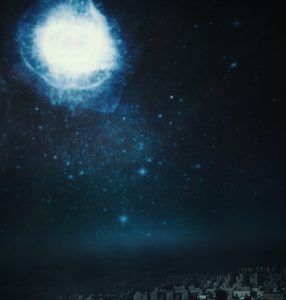
How much faith did it take the Wise Men to act on what they had seen and read about the star and Christ’s prophesied birth?
More than you know.
Part of Magi priestly duties was serving multiple religions. If they lived in Persia, they also practiced its official national religion, Zoroastrianism. So what the Wise Men read of a star and an eternal king was counterintuitive and countercultural to everything they’d practiced. Also, the star did NOT lead them all the way to Jesus. If it had done that, the Wise Men would not have had to stop in Jerusalem.
But they did. Why?
To consult with the Jewish priests. They were most likely to know more about the prophecies of Jesus than anyone else. We know the Wise Men didn’t have access to every prophecy about Jesus. If they’d read the book of Micah, they could have pinpointed the location of Christ’s birth (Micah 5:2). Not knowing the full picture, their best bet was to talk with Jewish priests in Jerusalem.
The Wise Men made it to Jerusalem—but not to the priests.
That’s a pivot point in the biblical narrative. And it’s where we risk missing the message between the words.
It’s a message of faith and God’s provision.
You see, God used their stop in Jerusalem for His glory—even though it put the Wise Men in harm’s way.
That underscores three takeaways.
First: Our efforts can get us only so far.
In their homeland, the Wise Men had found scant mention of an unusual star only in Jewish holy writings. In most cultures, priests were expert astronomers or astrologers. Collectively, that was enough to embark on a trek to Jerusalem to consult with the Jewish priests. After more than a year of research and planning, the Wise Men set out. But we have no record of them meeting with the priests.
Second: God’s provision can come in unlikely ways.
The Wise Men’s inquiries about a new king didn’t gain them access to the Temple’s outer courts—it got them seats at Herod’s dinner table. Herod was so disturbed by what the Wise Men said about finding a new king that he summoned Jewish scribes to determine if there was any credence to the Wise Men’s claims. Scribes knew the prophecies inside and out because they copied and memorized the holy writings. Although his reasons were self-serving, Herod told the Wise Men what they needed for the next leg of their trip. The child would be born in Bethlehem.
The Wise Men wouldn’t have dared talk with the priests after Herod delivered his missive to find the child and report back to him. So they headed to Bethlehem, hoping for a sign. But where in Bethlehem was Jesus?
Third: All that transpired gave God more glory.
The star appeared again right the Wise Men needed it most, guiding them straight to Joseph and Mary’s front door. A star that couldn’t be a natural cosmic event (such as how Saturn and Jupiter will align this December 21).
All the Wise Men’s resources, wisdom, and plans—even Herod’s information—fell short of what they needed to find Jesus. Only God could provide that. And He delivered it in a way that made it clear it came from Him alone. It left no room for ascribing praise to man’s efforts.
Conclusion
The Wise Men were willing to do what was foreign and uncomfortable for the sake of their convictions. And, along the way, they learned to rely on a God they didn’t know or understand. When they did, God showed up in ways they never could have imagined.
Oh, we need that today! The world is full of God-sized problems. Let us have the faith of the Wise Men to lean totally on God’s perfect provision!
Never miss a post!
More video songs for the season:
Kristen Chenoweth singing “Angels Among Us”
Jane Seymour narrating “Good King Wenceslas,” backed by liturgical ballet and the Mormon Tabernacle Choir
The Brooklyn Tabernacle Choir singing “They Followed His Star”
And maybe not technically a Christmas song, but still way cool and uplifting: the Brooklyn Tabernacle Choir singing “Favorite Song of All”





Leave a Comment